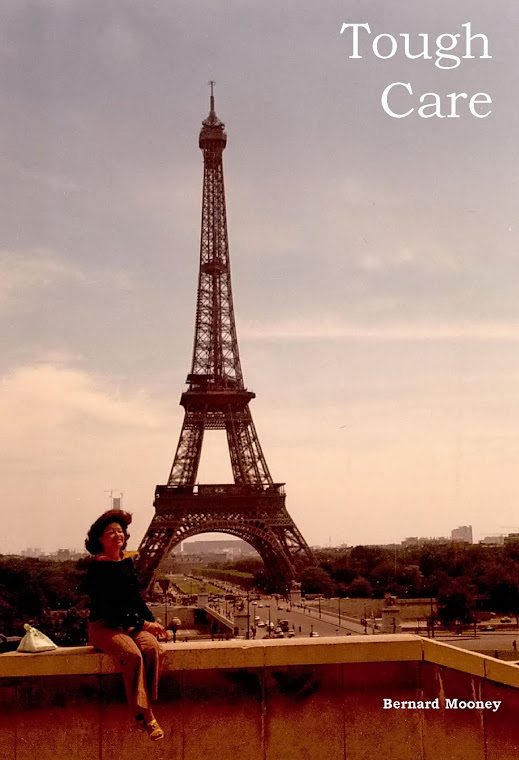Tough Care is now available for purchase in paperback at Amazon by clicking on the link in the upper right of the page.
It is now available for purchase as a Kindle eBook at Amazon by clicking on the link in the upper right of the page.
It is also now available for purchase as a Kindle eBook from the Kindle store directly from your Kindle device.
Tough Care

ISBN 978-1466391376
Wednesday, December 28, 2011
Tough Care the Book
In Tough Care, Bernard Mooney tells readers how Type 2 Diabetes was the root of the problems that terminated early on the energetic and productive life of his wife Celia. Causing the neuropathy that paralyzed her, it slowly and insidiously damaged the small blood vessels in her brain, which eventually led to a series of transient ischemic attacks and strokes.
You have probably heard of ‘tough love’. If you are a parent you may have practiced it in one form or another. You may have had it practiced upon you as a child or teenager.
Beginning in early 2007 I became engaged in something similar that I called ‘tough care’. The ‘tough’ in ‘tough care’ did not describe toughness on the part of the caregiver, but rather the tough circumstances under which the caregiver had to continue to care (in every sense of that word) for a loved one.
“The damaged blood vessels in her brain also generated the dementia that was probably the hardest thing for both of us to handle,” says Mooney.
In his frank and deeply moving memoir, after describing in detail the physical, mental, and emotional challenges he encountered when caring for a dying spouse, he summarizes the lessons he learned, which he hopes will benefit many baby boomers now, or in the future.
“I share these lessons because I believe it is certain that life is too short to learn through your own experiences alone,” he says.
Finding himself compelled by a sense of duty and responsibility to “soldier on” through what seemed like an endless succession of difficulties, ordeals, and personal trials, Mooney felt he had the physical power and emotional strength to care for his wife alone. Looking back, however, he says he should have sought better and more professional help sooner. He now realizes the importance of communicating with doctors and questioning anything not fully understood, and believes nurses are the very backbone of medical care. Gentle, kind, and compassionate, “they [nurses] could see Celia’s silent pain much better than I could,” Mooney says. He also emphasizes that hospice care, whether in an institution or at home, is the most humane way to help a loved one pass, and is sure that those who are at the end of their lives choose their own time to leave this world. However, “You will feel guilt whether or not you deserve to be guilty,” says Mooney. “You will feel the universal survivor’s guilt because you are still alive and your mate is not.” The trick is to not let this guilt turn into blame, and to accept that death occurs due to circumstances beyond anyone’s control.
Encouraging readers to communicate with their loved ones even after they have gone, Mooney also expresses how recalling memories will help with the healing process. “My wife has gone to a better place,” he says. “I am certain that she is glad to be there. I am also glad that her suffering has ended and she is now in a place of rest and peace.” He made sure she received every form of dignity and respect he could imagine, including her final interment with full military honors in Arlington National Cemetery. He feels some relief from having told his story. He hopes his book will provide a lot of the support, advice, and information readers will need.
Subscribe to:
Posts (Atom)